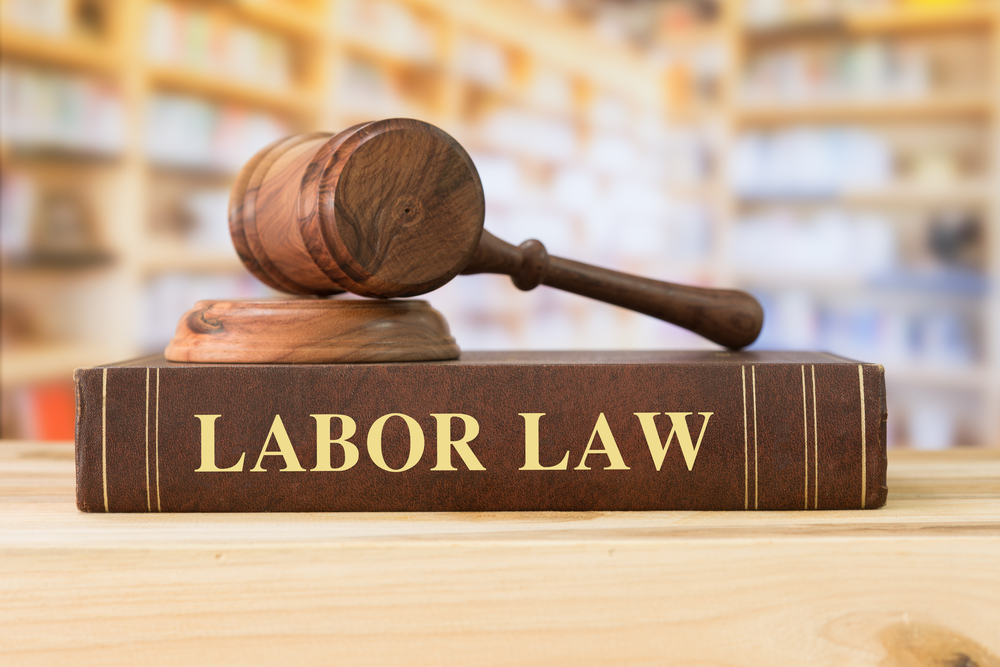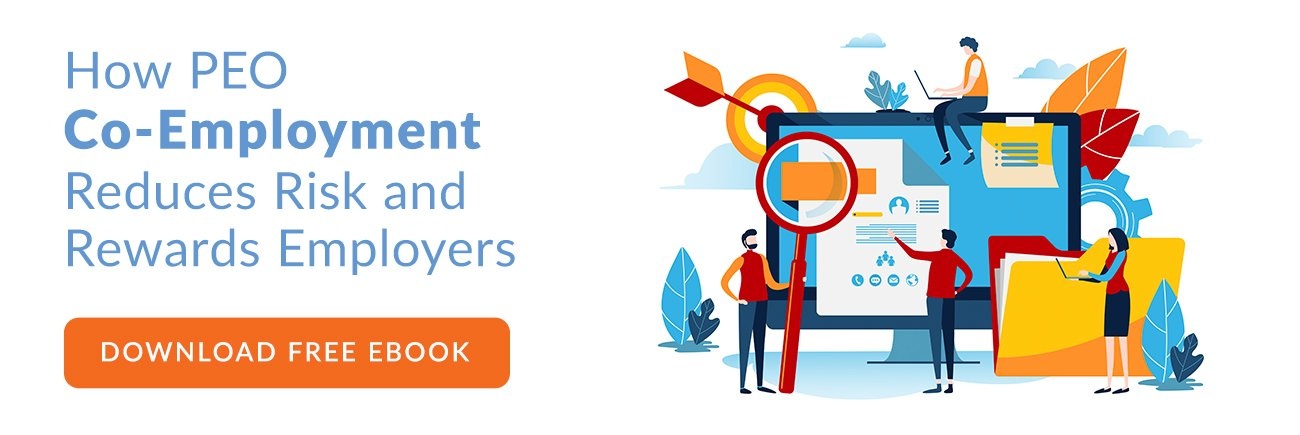Workplace class action lawsuits reached record heights in 2021. The most successful suits were wage and hour related, making it more critical than ever to ensure that payroll is done correctly and that you are compliant with all applicable laws.
There are many other reasons why your employees might sue you, and a lawsuit results in heavy direct costs, loss of morale, and extreme damage to your employer brand. While it is not possible to eliminate the possibility of lawsuits, working with a Professional Employer Organization (PEO) can significantly reduce that risk by ensuring that you avoid situations that can result in a suit. This can also increase your chances of winning if a lawsuit is brought against you.
Common Reasons Employers Are Sued
So, what are some common reasons why an employee or ex-employee might resort to a lawyer? Here are some to think about:
Illegal Interview Questions
Did you know it’s illegal to ask about a candidate’s kids? Make sure to avoid questions that can raise a lawsuit later. These include “Do you have children?”, “How old are you?”, and “Do you have any medical conditions?”
You can only ask questions that directly pertain to the job, such as whether they need accommodations, can they work on weekends, etc. In addition to increasing your risk of a lawsuit, savvy candidates will see illegal or overly personal questions as a red flag that tells them they should take their talent elsewhere.
Unfair Discipline
Be careful not to discipline an employee while angry or in any situation which might remotely look like retaliation.
Employees need to be disciplined equally. Set a company discipline policy, stick to it, and make sure everyone knows what it is and that there are no exceptions. It should be in the employee handbook.
Wrongful Termination
Wrongful termination means firing an employee in violation of any federal, state, or local law or in breach of the employment agreement terms. Most states have at-will employment, which means that you can fire an employee for any reason, but you still must not discriminate. This means you need to be particularly careful if you have to fire somebody who is, for example, pregnant. Protected classes may vary slightly from state to state (some states have LGBT as a protected class, some don’t).
Unlawful Exemption Decisions
Employees often misclassify people as exempt when they should not be, denying them overtime pay. This isn’t always done with malice; it’s usually a simple mistake or misunderstanding of complex rules.
You may end up fighting a class-action lawsuit if multiple employees are affected. Make sure that you classify employees correctly and don’t try to cheat the system with job titles that don’t match duties.
Employment Discrimination
Federal law prohibits discrimination based on race, color, religion, sex (including pregnancy, gender identity, and orientation), national origin, disability, age, or genetic information. This includes harassment based on these factors. It also covers the denial of reasonable accommodations for religion or disability. For example, consistently scheduling an observant Jew to work between Friday 6 pm and Saturday 6 pm constitutes discrimination in most cases.
Harassment
Perpetuating or enabling harassment is another way you can get sued. Harassment constitutes any unwanted behavior. It is often thought of in terms of sexual harassment, but harassment can also include:
- Offensive jokes (or “jokes” that become jokes when called out).
- Slurs and name-calling.
- Physical assaults or threats
- Intimidation
- Mockery
- Insults
- Offensive objects or pictures
- Unreasonable criticism.
- Exclusionary tactics such as withholding information.
- Unwelcome “pranks.”
You can be sued even if the harasser is another employee if you don’t take steps to shut down harassing and obnoxious behavior right away.
How Do PEOs Lower the Likelihood of Employee Lawsuits?
A professional employer organization or PEO is a comprehensive HR outsourcing solution that helps take care of your routine, non-revenue-producing HR tasks, not just payroll.
Other than lowering the risk of payroll mistakes, PEOs can lower the likelihood of lawsuits in several ways.
Managerial and Employee Training
PEOs can provide training to help managers spot and stop harassment and discrimination. Providing this kind of training reduces the risk that harassment will occur. It also creates a goodwill defense against lawsuits; you can say that the offending employee or manager received all of the relevant training, and thus you are not responsible for them “going off the rails.”
Advice on HR Best Practices
When you partner with a PEO, you gain a wealth of expertise you might not otherwise be able to afford. A PEO can help you streamline your records to ensure that you have the proof you need to support termination and discipline and demonstrate lack of discrimination. They can review your interview questions to make sure none of them are illegal.
They can help with compliance, providing you with a full team of experts for far less than it would cost to hire them.
FLSA Audits
A PEO can also audit your employee exemption classifications. This will ensure that you have the right employees marked as non-exempt and exempt. Non-exempt employees will get the overtime pay they are entitled to and will be less likely to sue you.
Other Reasons to Use a PEO
PEOs also have a large number of other benefits. They can help you offer far better benefits at a more affordable price, give you access to enterprise-level HR software, save on workers’ compensation and increase productivity and profit.
Working with a PEO lets you control HR-related costs while improving HR-related processes and is the best HR outsourcing solution for many companies.



